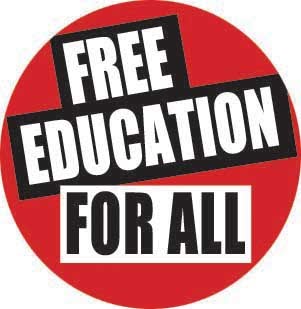It is stated in the international human rights law that primary education should be obligatory and should be free of charge.
Same goes to secondary and higher education, though progressively free of charge. This is to assure everyone that there is access to education.
Free education is funded through taxation or charitable organizations. As this should be the case, millions of children of school-age are still deprived of education. The reason being their families cannot afford to send their children to school because of the indirect costs related to education. This may include schoolbooks, uniform, food and travel cost. In many developing countries, this prevents the children from low-income families to access this free education.
Some States may face financial difficulties to guaranteeing free primary education. A State that is unable to secure primary education free of charge has to work out a detailed plan of action for its progressive implementation within two years.
However they say that there is free education, it is still questionable as to how free it is. The burden of tuition may have been removed but non-educational costs to support education is still a difficulty nowadays.

